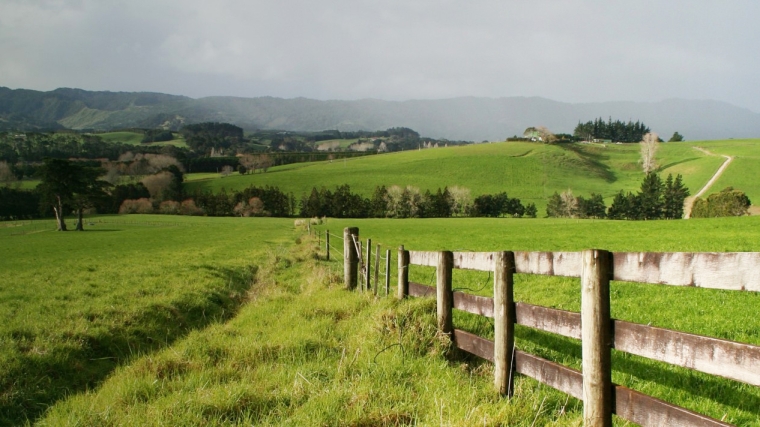
Dr Harry Clark is a Director at the New Zealand Agricultural Greenhouse Gas Research Centre, and we talked about his views on the He Waka Eke Noa program.
He has some interesting perspectives in the wake of the Climate Change Commissions advice to not recognise sequestration via the He Waka Eke Noa program.
Is the He Waka Eke Noa (HWEN) program is the right pathway for our farmers? Clark said; “I think in general pathways that rely, not on regulation, but on voluntary action, are better in concept.”
He said that if through the HWEN program there can be this agreement that there was a successful outcome from this joint government industry approach that comes up with the tools needed for farmers to estimate their emissions, encourages, and reaches its goals with on farm plans, which will include individual farm written plans as to how you get their emissions down. He said he supported the first approach where the industry and government are trying to achieve the desired outcome. And he thinks it is certainly something we should try first, rather than going directly into regulation.
“I just hope we can land it, I think it's a much better approach than going down the regulatory pathway.”
He says New Zealand has always tried to avoid heavy regulation in the agricultural sector, because what we've seen from overseas, regulation, and subsidies for example do not necessarily mean efficient agriculture.
Clark believes we can get through this economic process, but he also understands why some people are a bit sceptical, because the sceptics say - well, is the industry ever going to take action voluntarily? “But I think it's something we do have to acknowledge that this is a genuine attempt by the industry and government to work together. And we have to be optimistic that it will result in outcomes that are beneficial, both for the farming community and the country.”
When many farmers feel that they are celebrated on one hand for underpinning the economy, then on the other hand driven into a corner with increased pressure through constant policy changes, what did he make of that?
He said; perhaps it's the modern world, but he can understand from a farming perspective, he also thought, in particular, we have seen pressure in New Zealand around water regulation and water legislation that farmers feel that the goal posts are constantly changing. You reach one goal post and by the time you're getting there, there's another and it's moved somewhere else.
He thinks there is a recognition that it is a farming is now exceedingly complex. But any industry has to have social acceptance and talking about his experience growing up in an industrial city in the north of England, where regulations around water only came in during the mid 50’s, it was very difficult for industry to meet these when they had been polluting for 200 years. “They felt picked on and I think, what we are we seeing in the agricultural sector, societal expectations have changed. And you know, the agricultural sector is to some extent now, having to deal with those societal expectations.”
Clark acknowledges there has to be recognition as well. And this recognition does come at times like COVID or in the face of a recession, when our economy has been kept alive by the exporters and the primary industry, and as a result we didn't suffer as much as many because of that underlying stability of export trade. So there is this unfortunate dichotomy that, yes, we rely heavily economically on our Primary Industry, but we have increasing expectations on farmers in terms of the environment.
He says that if there is any nice simple message on that, it does come as part of the social license, that unless those issues are addressed, the problem gets worse.
“I think to that voluntary approach, that there will be increasing expectations on environmental outcomes from farming. But I do think we have to make a concerted effort that we don't blame individuals or segments of society for change in societal expectations, and that's at a philosophical level, because we accept the good and then we want to, hit on the bad, but actually, we are as a society, asking for outcomes that we desire, and how do we then help that and stop the blame game, because that doesn't help anyone.”
We are already the most sustainable food producers on the planet, farmers are getting stuck in and rising to the challenges in front of them and adopting many changes to their practices. And if we are counting emissions we have to understand and count sequestration in it’s entirety.
This interview with Dr Harry Clarke was done prior to the advice from the Climate Change Commission, you can find their advice here.
P2 Steer
Select chart tabs
Angus Kebbell is the Producer at Tailwind Media. You can contact him here.
1 Comments
Voluntary action over regulation never works. When driving on the left was voluntary, it was a disaster. If one's competitors in the market do not have to comply with things that one chooses to comply with that add costs to one's product, then one loses market share. Quite simple. I am surprised that anyone would ever subscribe to such a regime. It doesn't help with the author having any credibility on other topics under discussion.

We welcome your comments below. If you are not already registered, please register to comment
Remember we welcome robust, respectful and insightful debate. We don't welcome abusive or defamatory comments and will de-register those repeatedly making such comments. Our current comment policy is here.